- Home
- John Ellsworth
The Law Partners (Michael Gresham Legal Thriller Series Book 3)
The Law Partners (Michael Gresham Legal Thriller Series Book 3) Read online
Michael Gresham: The Law Partners
John Ellsworth
Contents
Email Signup
Chapter 1
Chapter 2
Chapter 3
Michael Gresham
Chapter 4
Chapter 5
Chapter 6
Chapter 7
Chapter 8
Chapter 9
Chapter 10
Chapter 11
Chapter 12
Chapter 13
Chapter 14
Chapter 15
Chapter 16
Chapter 17
Chapter 18
Chapter 19
Harley Sturgis
Chapter 20
Chapter 21
Chapter 22
Chapter 23
Chapter 24
Chapter 25
Chapter 26
Chapter 27
Chapter 28
Michael Gresham
Chapter 29
Chapter 30
Chapter 31
Chapter 32
Chapter 33
Chapter 34
Chapter 35
Chapter 36
Chapter 37
Chapter 38
Chapter 39
Chapter 40
Chapter 41
Chapter 42
Chapter 43
Chapter 44
Chapter 45
Chapter 46
Also by John Ellsworth
About the Author
Acknowledgments
Email Signup
Copyright
Reviews
Email Signup
If you would like to be notified of new book publications, please sign up for my email list. You will receive news of new books, newsletters, and occasional drawings for prizes.
— John Ellsworth
1
Johnny Washington hit the pipe and the crack bugs went crazy. He caught a glimpse of ragged fingernails flying to the skin on his arms. The nails flailed at the imaginary devils. He then shook like a wet dog. But the crack bugs were persistent. He set to raking his arms harder from his perch on the upturned milk crate. The day was bright and sunny on the streets of South Chicago, but here, in the alley behind the Quik Stop, time stood still and heavy shadows came tumbling from the clouds that seemed to hang everywhere. He didn't know it was all a crack dream--the bugs, the clouds, the feelings of pure heaven. He just took another hit.
50 Cent's syllables pounded up over the Quik Stop, floating in the air over Johnny's head, begging to be injected into the veins of the empty black teenager whose inner life was composed solely of feelings, rhyme without meaning.
He moaned as the euphoria trailed off. Then his anger at the world returned and he looked around for something or someone to attack. The glass tube fell from his fingers into the dirt behind the Quik Stop. The pipe didn't shatter, and that would be a win for the crime scene techs who would be sweeping the area in about an hour.
Johnny climbed to his feet from the milk crate. He stumbled into the Quik Stop and immediately seized a quart of Budweiser from the cooler and unscrewed the cap. In one long slug he drained off half the bottle and belched. Joseph Arnold, the proprietor, watched Johnny saunter through his store up to the linoleum countertop where he placed his elbows, the beer bottle trapped between his hands like a squirming bird. Johnny saw it with a twist: everything he touched just wanted away from him.
Arnold looked at him with a look of intense hatred. Johnny wore his pants so low the belt loops underhung his white T-shirt, and the do-rag identified him as a Crip, a gangbanger, rhyme-sprung flesh on bones that sought nothing and gave the same in kind. He held out the beer bottle to Arnold and said, "See this?"
Arnold nodded. He didn't want any trouble with Johnny Washington. No one in his right mind did. The young man had a laundry list of criminal convictions attached to his name on his CPD juvie record. When he turned eighteen two weeks ago, he was released from juvie with one hundred dollars and told to go home. Except Johnny couldn't go home because there was no home to go to. His mother was dead and his father was long gone. He had two siblings, a brother and sister, but they were both in state lockup. There were some aunts but they had their own problems. With no place to turn, Johnny took the only job available to him in South Chicago: he joined the Crips. A famous gang of black youth with nothing to live for and everything to gain by a life of crime.
So when Johnny asked Quik Stop owner Joseph Arnold, "See this?" Arnold knew better than to respond. He only smiled at Johnny and the youth muttered an obscenity and banged though the screen door and out onto the sidewalk along Ballantine Street.
Traffic was light. It was mid-morning and everyone was at work. The only vehicles were delivery trucks, taxis, and the occasional white person driving a nice car who had blundered into this part of Chicago purely by mistake. They always fled once they realized where they were.
But Johnny wasn't thinking about all that as he stepped from the sidewalk into the street. He was thinking only about finding a certain girl. Crack always did that to him, made him crazy for female flesh. He began crossing the street. An eighteen-wheeler approached and laid on its air horn. Johnny returned from his somnambulant stroll. Jamming his fists into his hips he whirled around and dared the trucker to run him over. The trucker stopped and Johnny stepped out of the lane onto the centerline. He then proceeded to walk along the middle of Ballantine Street for half a block, causing traffic to swerve and honk in frustration. Rage begat rage, Johnny heard a voice say, and he looked around. "Who said dat?" he asked.
Which was when Officer Tory Stormont approached the minor traffic snarl. He pulled his squad car to the center of the road, facing Johnny head-on. He activated his emergency lights. He exited his vehicle and walked around front, where he shouted to Johnny, still fifty feet away but approaching, "Son, you need to get out of my street."
Johnny ignored the man. The truth of the matter was that Johnny couldn't tell head voices from real voices. Words floated by like handles; he grabbed at them when he could. When the officer called out to him again, Johnny heard yet another voice; it was about the street. So he proceeded toward the police car to investigate.
"Halt!" cried Officer Stormont. "Stop right there!"
Johnny ignored the command. He continued to close the distance between them.
"Freeze!" cried the officer.
Johnny became angry at the officer's tone. Nobody ever talked to him like that, especially when he was flying the Crips' colors. His arm drew back the beer bottle and flung it at the officer. The bottle hit the hood of the car, fell, and shattered on the asphalt. It had narrowly missed Officer Stormont's head. Officer Stormont's right hand went to his holster and he unsnapped the safety strap.
Johnny recognized none of the officer's movements as a threat. He kept coming, quickening his pace, breaking into a run directly at the officer.
Whipping the gun from its holster, Officer Stormont pointed it at Johnny's chest and again ordered the youngster to halt. But Johnny was having none of it and kept coming. Officer Stormont considered his universe in a split second: white cop surrounded by fifty thousand blacks, backup five minutes away: an eternity on this mean turf; several dozen citizens along the sidewalk, some of whom would be videoing him as they always did anymore at the first sign of a white-on-black confrontation.
His eyes darted around; anything to stop what was about to happen.
Still Johnny came on; the cop felt threatened with great bodily harm--which was the necessary legal standard to justify a
shooting. A squirt of urine escaped his bladder but his navy pants covered it up. Frantic and losing control, he squeezed off a wild shot. The bullet struck the Crips soldier in the sternum and traveled off to the right side, away from the heart. Wounded but not mortally, Johnny kept closing the distance. He was half-running at this point, slowed somewhat, but he was running, according to the police officer's dash camera.
Rattled by the young man’s staying power, Officer Stormont fired again and again, striking Johnny in the shoulder and the abdomen. Now Johnny was staggering and 50 Cent no longer inspired him, but still he approached. At the last possible second, the officer raised the muzzle of his gun, aiming it right between Johnny's eyes. He squeezed off one shot and then another. Witnesses would say the last two shots actually sounded like one long one. Johnny, reaching for the officer, crumpled to the asphalt. The officer stepped back from the dead teen, stunned. Witnesses along the sidewalks began pouring into the street.
"I seen it," said one woman wearing a pink dress. "The boy wasn't doin’ nothin’ wrong."
Two men wearing hardhats approached. "He was trying to stop when the officer cut him down. Cold-blooded murder, I'd say."
Officer Stormont stepped around the door of his patrol car. Shaken and his face drained of color, he keyed his mike and called Dispatch.
"Backup and an ambulance now!" he cried into the mike. "I've shot someone and I'm pretty sure he's dead but send an ambulance."
"Shot someone?" said the voice at the other end. "Where?"
"In the body and in the head."
"No, officer, where are you?"
"Fifteen-fifty Ballantine. Just down from the Quik Stop."
"I'm sending backup and an ambulance--now."
After an eternity, Officer Stormont heard distant sirens coming closer. But so was the crowd. He was sitting in the driver's seat of his squad car, his feet outside on the ground. Someone pushed forward and closed the door on his legs. He winced in pain and tried to stand up. But he was trapped in the seat and the crowd was pushing ever nearer.
"Get back," he cried in his best command voice. "Don't come any closer!"
"You murdered that child," said a woman in a cheap dress. She was maybe mid-sixties and quite large and the crowd seemed to make way for her. "That's my grandson and I seen the whole thing. You shot him down when he wasn't doing nothin’," she screamed. "You gonna get yours, officer nobody."
"Get back!" Stormont shouted again.
But it wasn't necessary. Two patrol cars pulled into the center of the road and approached at a high rate of speed. Then they slowed and four cops jumped out and moved in on foot, hands on nightsticks, nervously eyeing the angry crowd.
The new arrivals dispersed the crowd, sending them scattering back onto the sidewalks. Then they surrounded the dead body. One cop went for orange traffic cones while a second felt Johnny's throat. Clearly he was dead, but the determination of death was necessary, for it controlled the officers' next steps. The first man returned with ten orange cones and the men positioned them in a great circle around the body and Stormont's police car. An MSNBC wag would refer to the scene as the new American Stonehenge emerged from the fog of gunpowder and racial hatred.
Stormont was still sitting in his car, shaking, his head lowered and his mouth mumbling indistinct sounds. The others left him alone after checking to be sure he wasn't injured. No one wanted to be called as a witness to anything he might say, so they kept their distance and waited for the shooting team and CSI’s to arrive from the CPD.
At last the shooting team arrived and took over. CSI’s scattered throughout the scene and the crack pipe was found discarded behind the Quik Stop. The tech dropped it into a plastic bag and checked it into evidence. A crack pipe bearing the deceased’s DNA could be huge.
A shocky Tory Stormont was helped into a black SUV which then activated its emergency lights and sped away.
Riots followed that night. The crowds grew and by the next afternoon several buildings were burning. A Walgreen's was looted, and the major news outlets were broadcasting from curbside. This went on for a full week.
Reverend Jesse Jackson came and had his say. Then came Reverend Al Sharpton. Black lawyers soothed the dead boy's mother's sisters, and plans were laid for a major lawsuit against the City of Chicago and Tory Stormont. CNN news anchors stalked the streets. Shots were fired but the news teams were fearless and trekked on in search of the next news-fathered story. The whole thing became surreal, with the Illinois National Guard having the final say when it moved Armored Personnel Carriers into position and passed out real bullets to the guardsmen.
The protests, lootings, fires, and random gunshots continued for ten days. In the end, the National Guard won an uneasy forfeit just because the weather had turned unbearably hot and the Guard was the only group left standing.
Officer Stormont was placed on paid leave. His name and file photo were on TV every few minutes day and night. He believed the crowds were hunting for him. He stopped leaving his apartment. He refused to answer his phone. Overnight he found he was a changed man, a man who had become willing to do anything to stay above ground.
2
Two weeks later, the Chicago Police Department's shooting team and the District Attorney were wasting no time, trading witness statements and reports and investigatory leads. Teams returned to the scene and more measurements were taken. Cameras clicked and whirred. Bullet trajectories were laid out in white strings and more pictures taken.
Meetings were held in which witnesses, deputy DA’s, and police searched for insights and answers.
The entire community was watching. Without an indictment of the white cop there would be blood in the streets. It was promised.
In the end it all came down to the officer’s dash cam. The video was clear and the view unobstructed. It was all presented to the DA’s second-in-command, Darrell Harrow. Harrow took the case before the grand jury and laid it out. The grand jury came back with a true bill—Officer Tory Stormont was indicted on a charge of first degree murder.
Harrow explained to the press that Stormont’s final two shots were fired off as the young man was falling to the ground. It was an execution, he made the mistake of telling the Tribune. The Police Union responded with a threat of a recall election of the District Attorney. Cops called in sick by the hundreds. Black Lives Count filled the streets with peaceful marchers while opportunists from all sides set stores ablaze and looted a Target and a Costco. The nation was polarized.
CNN, Fox, and MSNBC had never left. They pointed their cameras at the new players in the case—the lawyers.
Assistant DA Darrell Harrow was a no-nonsense veteran of the homicide wars in Chicago. He went before the cameras, where he predicted a verdict that would satisfy the victim’s family and neighbors and community.
Officer Tory Stormont took the news of the indictment hard. He hid inside his apartment while the cameras roamed the courtyard outside. According to the police union rep, Stormont was extremely emotional, spewing hatred at the authorities for abandoning him.
But Stormont had the support of his fellow officers and the police union. They swore that he wasn't going to go down just because he had followed departmental lethal force policy. Which was true, they said, and now look.
Indicted and enraged, he nonetheless pulled himself together and assessed his predicament. He morphed from outraged to calculating. Then he found himself calling in favors as he put together a dossier on the DA who had indicted him. On the day of his arraignment in court, Stormont followed Harrow out of the courthouse and tailed him home.
It was the beginning of his fixation on the man who represented everything Stormont saw wrong with the criminal justice system, the man who had indicted him, the man who had to be stopped.
The media went away. Stormont returned to the streets. He watched Harrow’s house day and night. He had nothing else going on, being on paid leave. At night he pawed through Harrow’s garbage and became satisfied that Harrow had
a serious drinking problem covered up by hiding Jim Beam bottles at the bottom of his garbage bin.
Then, on July Fourth, Harrow attended a fundraiser put on by the Cook County Democratic Party. Stormont stood not five feet from Harrow as the lawyer argued with a woman who later made a speech. Clearly Harrow was intoxicated and the woman rebuffed him repeatedly. Harrow persisted. He warned the woman he was coming to her home that night to settle things. She tossed her head and laughed him off. He was demeaned and Stormont saw the man’s rage take hold. His next move was easily predicted by Stormont so he tore away from the scene. He had been to the woman’s home before and he was headed there now. It was important that he arrive first.
Stormont raced to the woman's home, a condo in downtown Chicago. He went inside the lobby and got clearance at the security desk. He was wearing jeans and a T-shirt and a hat pulled low on his forehead. But he was clean-cut and well-mannered. They wouldn’t remember a nondescript nobody in jeans and a T-shirt. They didn't even ask to check his shoulder bag.
He avoided making eye contact with the CCTV cameras as he headed to the elevators.
He was cleared to visit unit number 2566. The woman lived in 2564. He didn’t plan on leaving a record connecting him to her number.
Stormont stepped off the elevator and disappeared from camera range as he headed down the hall. There was no closed circuit TV allowed in the hallways; the owners had voted it down, preferring their privacy.
He stopped outside of 2564 and sprung the door with his picks. He stepped inside.
Into her bedroom he crept and removed his street clothes. Then, from the shoulder bag, he withdrew the Chicago Police Department uniform and put it on. It was the uniform with the stripe-less sleeve of a patrolman, a job he had once held in high regard. Now he just saw it as his downfall.
He slipped the police utility belt around his waist and adjusted the pepper spray, handcuffs, magazines, and semi auto. He settled the hat low across his eyes. His uniform made him feel powerful. When all hell broke loose and the duty cops arrived and he mixed in with them, the security staff and the district attorneys and the defense attorneys would have no record of him arriving there before the others.

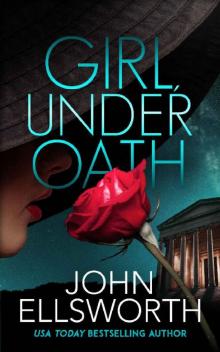 Girl, Under Oath (Michael Gresham Series)
Girl, Under Oath (Michael Gresham Series)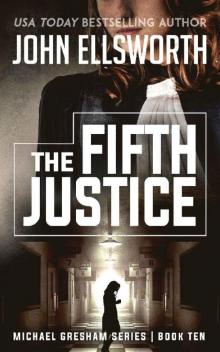 The Fifth Justice (Michael Gresham Legal Thrillers Book 10)
The Fifth Justice (Michael Gresham Legal Thrillers Book 10)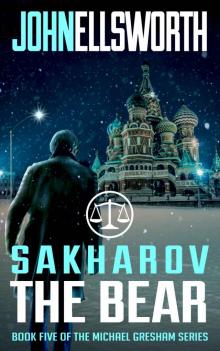 Michael Gresham (Book 5): Sakharov the Bear
Michael Gresham (Book 5): Sakharov the Bear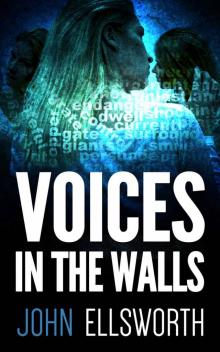 Voices In The Walls: A Psychological Thriller (Michael Gresham Series)
Voices In The Walls: A Psychological Thriller (Michael Gresham Series)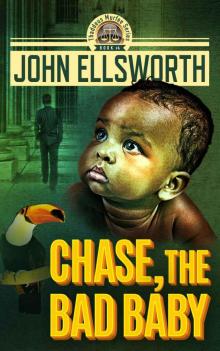 Chase, the Bad Baby: A Legal and Medical Thriller (Thaddeus Murfee Legal Thriller Series Book 4)
Chase, the Bad Baby: A Legal and Medical Thriller (Thaddeus Murfee Legal Thriller Series Book 4)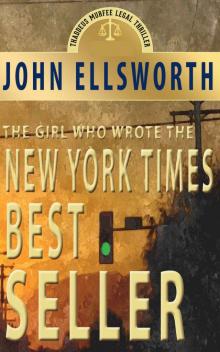 The Girl Who Wrote The New York Times Bestseller: A Novel (Thaddeus Murfee Legal Thrillers Book 8)
The Girl Who Wrote The New York Times Bestseller: A Novel (Thaddeus Murfee Legal Thrillers Book 8)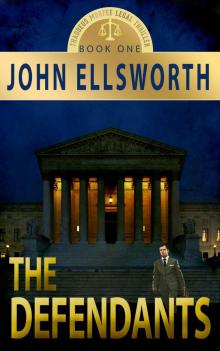 The Defendants: Crime Fiction & Legal Thriller (Thaddeus Murfee Legal Thriller Series Book 1)
The Defendants: Crime Fiction & Legal Thriller (Thaddeus Murfee Legal Thriller Series Book 1)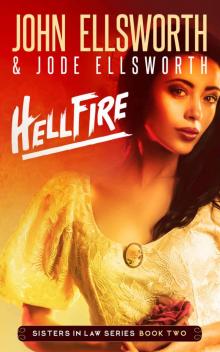 Hellfire (Sisters In Law Book 2)
Hellfire (Sisters In Law Book 2)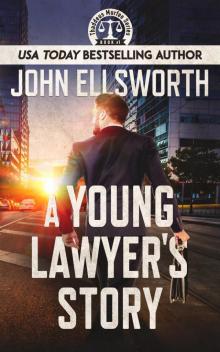 A Young Lawyer's story
A Young Lawyer's story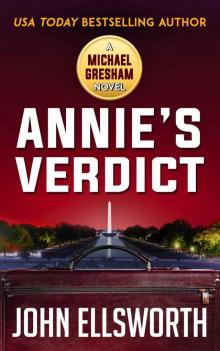 Annie's Verdict (Michael Gresham Legal Thrillers Book 6)
Annie's Verdict (Michael Gresham Legal Thrillers Book 6)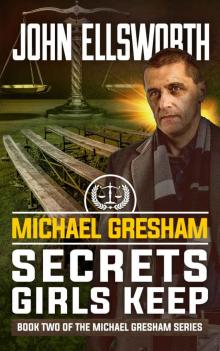 Legal Thriller: Michael Gresham: Secrets Girls Keep: A Courtroom Drama (Michael Gresham Legal Thriller Series Book 2)
Legal Thriller: Michael Gresham: Secrets Girls Keep: A Courtroom Drama (Michael Gresham Legal Thriller Series Book 2)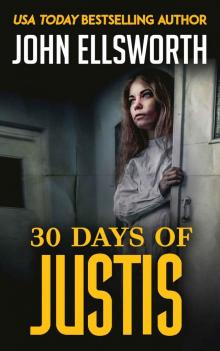 30 Days of Justis
30 Days of Justis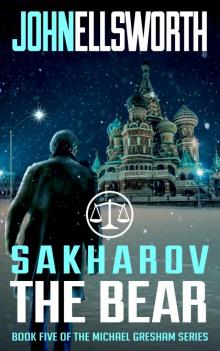 Sakharov the Bear (Michael Gresham Legal Thrillers Book 5)
Sakharov the Bear (Michael Gresham Legal Thrillers Book 5)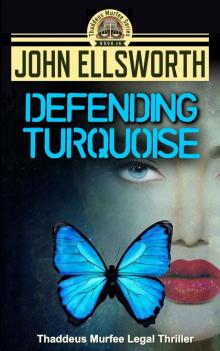 Defending Turquoise (Thaddeus Murfee Legal Thriller Series Book 5)
Defending Turquoise (Thaddeus Murfee Legal Thriller Series Book 5)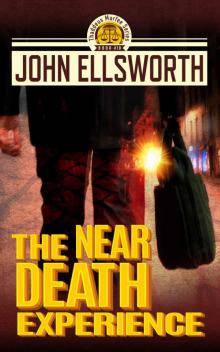 The Near Death Experience (Thaddeus Murfee Legal Thriller Series Book 10)
The Near Death Experience (Thaddeus Murfee Legal Thriller Series Book 10)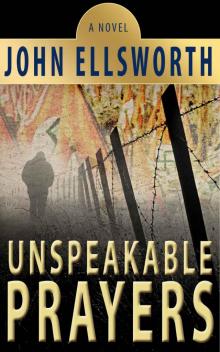 Unspeakable Prayers: WW II to Present Day (Thaddeus Murfee Series of Legal Thrillers)
Unspeakable Prayers: WW II to Present Day (Thaddeus Murfee Series of Legal Thrillers)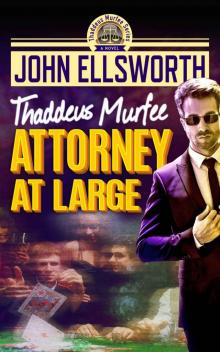 Attorney at Large (Thaddeus Murfee Legal Thriller Series Book 3)
Attorney at Large (Thaddeus Murfee Legal Thriller Series Book 3)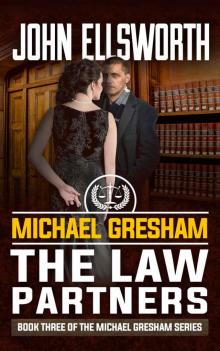 The Law Partners (Michael Gresham Legal Thriller Series Book 3)
The Law Partners (Michael Gresham Legal Thriller Series Book 3)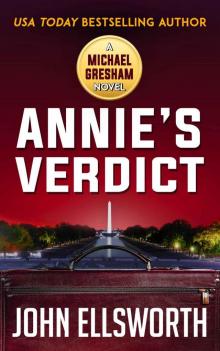 Annie's Verdict
Annie's Verdict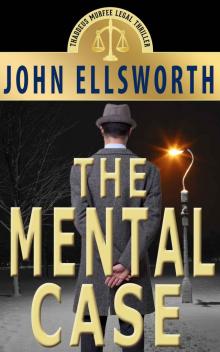 The Mental Case (Thaddeus Murfee Legal Thriller Series Book 6)
The Mental Case (Thaddeus Murfee Legal Thriller Series Book 6)